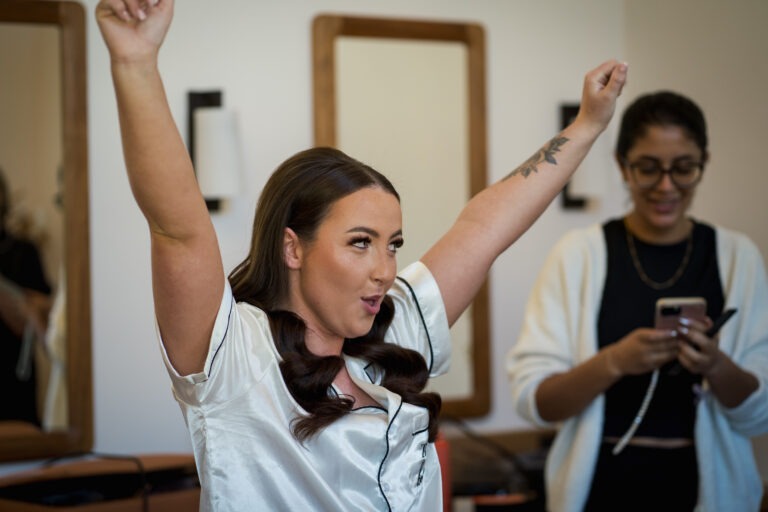Photography has never been more accessible. Nearly everyone walks around with a high-quality camera in their pocket, snapping away at anything from their morning coffee to breathtaking landscapes. Billions of images are uploaded every single day. So, where does that leave professional photographers? Is there still room for us in a world where everyone is a photographer? The short answer: absolutely. The long answer? Well, let’s dive in.
Why Professional Photography Still Matters
Let’s get one thing straight—just because everyone can take a picture doesn’t mean everyone should call themselves a photographer. There’s a difference between taking a quick shot and crafting an image. Professional photographers don’t just capture a scene; they tell a story. They play with light, composition, colour, and emotion to turn a moment into a masterpiece.
Think about it—would you hire your mate with an iPhone to shoot your wedding? Probably not. Why? Because you want someone who knows how to handle tricky lighting, capture fleeting emotions, and ensure that every important moment is preserved. Professional photographers bring consistency. Sure, anyone can get lucky with a great shot, but can they replicate that magic again and again in different environments, under different conditions? That’s where expertise shines.
Storytelling: More Than Just Snapping Pics
Great photography isn’t just about clicking a button. It’s about storytelling. And that’s something an algorithm or a casual phone snapper can’t always replicate. Whether it’s documentary photography exposing social issues, wedding photography capturing the biggest day of someone’s life, or commercial photography shaping a brand’s identity—photographers create narratives that resonate.
Photojournalism is a great example. In a world where everyone is a “citizen journalist” armed with a smartphone, you’d think professional photojournalists would be obsolete. But here’s the thing—having access to a camera isn’t the same as knowing how to frame a story. A professional photojournalist captures not just what’s happening but why it matters. They consider composition, timing, ethics, and authenticity. They tell stories in a way that casual snapshots rarely can.
Businesses Still Need High-Quality Visuals
Let’s talk business. Sure, social media is packed with user-generated content, and brands are tapping into that more than ever. But does that mean companies no longer need professionals? Far from it.
Businesses still need crisp, well-lit, compelling visuals for their websites, marketing campaigns, advertisements, and branding materials. User-generated content is great for authenticity, but when it comes to creating a polished, professional look, businesses turn to experts. Whether it’s product photography, corporate headshots, or real estate photography, companies want quality, and that’s not something an Instagram filter can always provide.
Social Media: A Double-Edged Sword
Yes, social media has made everyone feel like a photographer. But guess what? It’s also created an even bigger demand for professional photographers. The visual nature of platforms like Instagram, TikTok, and Pinterest means brands, influencers, and content creators are constantly on the lookout for eye-catching imagery.
Professional photographers who embrace social media aren’t just surviving; they’re thriving. They’re using these platforms to showcase their work, build their brands, and connect with potential clients. Some photographers have even gained massive followings by sharing behind-the-scenes content, tutorials, and personal projects, giving them an edge in an oversaturated market.
Specialisation: The Key to Staying Relevant
One way professional photographers can future-proof themselves? Find a niche and own it. The jack-of-all-trades approach doesn’t work in a world overflowing with content. Whether it’s luxury weddings, wildlife, architectural photography, commercial branding, or even high-end pet portraits—specialising helps photographers carve out their own space.
Think about it. A smartphone user might take a decent portrait, but can they direct a model, manipulate lighting, and retouch images to perfection? A landscape snapper might capture a nice sunset, but do they understand how to blend exposures, plan a shot for the best weather conditions, or edit RAW files with precision? Specialisation turns a hobbyist into an expert.
Teaching and Mentorship: A New Opportunity
Another way photographers stay relevant? By teaching. The rise of online learning means more people than ever are eager to improve their photography skills. This creates a fantastic opportunity for professionals to step in as educators.
Workshops, online courses, one-on-one coaching—these are all ways photographers can share their knowledge while earning income. Some photographers have built entire businesses around educating aspiring shooters. And the best part? Teaching reinforces expertise. It keeps photographers engaged, learning, and at the forefront of industry trends.
The Magic of Print Photography
We live in a digital age, sure. But something interesting is happening—people are rediscovering the value of physical prints. There’s something special about holding a beautifully printed image in your hands, hanging it on a wall, or flipping through a carefully curated photo book.
Professional photographers are capitalising on this. Whether it’s selling fine art prints, creating custom photo books, or offering premium wedding albums, there’s a growing demand for tangible photography. In a world where digital images are often scrolled past and forgotten, printed photography offers permanence.
Embracing Technology, Not Fearing It
AI and automation are creeping into photography, and some people worry that this spells the end for professionals. But here’s the truth: AI isn’t going to replace photographers—it’s just another tool.
Yes, AI-powered cameras can help with focus, exposure, and even basic editing. But can they compose an artistic shot? Can they build rapport with a client, direct a shoot, or capture the soul of a moment? Not yet. Instead of fearing technology, photographers should embrace it—using AI-assisted tools to speed up workflow while focusing on the creative aspects that machines can’t replicate.
The Future of Photography: Adapt or Get Left Behind
Photography isn’t dying—it’s evolving. The professionals who thrive will be the ones who adapt. Whether that means leveraging social media, embracing new technology, teaching, specialising, or offering unique products, the key is to stay ahead of the curve.
Photographers who resist change will struggle. But those who see the shifts in the industry as opportunities will continue to find success. The demand for quality visuals isn’t going away anytime soon. If anything, it’s growing. And as long as people want beautiful, powerful, and meaningful images, professional photographers will always have a place.
Conclusion: Photography is More Alive Than Ever
Yes, we live in a world of infinite images. But that doesn’t mean photography is losing its value—it just means photographers need to work smarter, be more creative, and embrace the changes shaping the industry. People still crave storytelling, authenticity, and artistic excellence. And that’s something no smartphone, filter, or AI algorithm can fully replace.
So, is there still a place for professional photographers? Absolutely. In fact, the opportunities are bigger than ever—you just have to know where to look.
Keywords for SEO:
- Professional photography in the digital age
- How photographers stay relevant
- Is professional photography dying?
- The future of photography careers
- Why hire a professional photographer
- The impact of social media on photography
- Photography vs smartphone cameras
- How AI is changing photography
- Best photography niches in 2025
- The value of professional photography
- Photography business in a digital world
- Why brands need professional photographers
- Print photography vs digital images
- Photography storytelling techniques
- Social media photography trends
- Commercial photography demand
- The evolution of professional photography
- Why photographers still matter
- Specialisation in photography careers
- Photography education and mentorship opportunities





